Publications
A repository of publications focusing on FLR in the context of Asia.
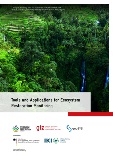
Tools and Applications for Ecosystem Restoration Monitoring
2024
The study analyzes 11 freely available monitoring tools and apps which can support local ecosystem restoration implementers to track and report their activities and progress. The study does so by comparing each tool's functionalities, technical requirements, and user-friendliness.
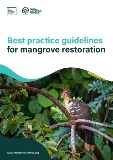
Best practice guidelines for mangrove restoration
2023
The Best Practice Guidelines for Mangrove Restoration brings together the latest accumulated local and scientific knowledge about mangrove restoration best-practices into one comprehensive resource. The aim is to align mangrove practitioners, NGOs, governments, scientists, industry, local communities, and funders around accepted best-practices for science-based and inclusive mangrove restoration.
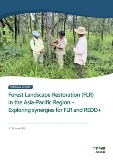
Forest Landscape Restoration (FLR) in the Asia-Pacific Region – Exploring synergies for FLR and REDD+ (Training Report)
2023
15 technical-level government officials and forestry experts involved in FLR/REDD+ and national-level forest plans/programs of Member Countries participated in a workshop. The report incorporates the understanding of the concept, challenges, and opportunities of climate action partnership through FLR/REDD+ and critical considerations to improve future planning of FLR/REDD+ projects.
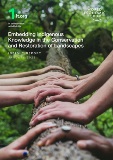
Embedding Indigenous Knowledge in the Conservation and Restoration of Landscapes
2023
Highlights that respecting Indigenous peoples’ cultural knowledge, rights and responsibilities will boost the resilience and long-term impact of landscape conservation and restoration projects. The report touches only lightly on deeply complex issues such as colonial nature destruction, Indigenous authority and rights, gender roles, sacred knowledge and Indigenous nature science.
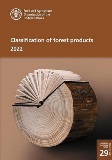
Classification of forest products 2022
2022
The statistical classification system for forest products enables the collection, compilation, analysis and dissemination of high-quality global data on forest products by ensuring that information is comparable across countries.
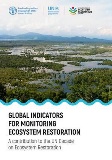
Global indicators for monitoring ecosystem restoration
2022
First draft of the global framework for monitoring and reporting progress in relation to the UN Decade.
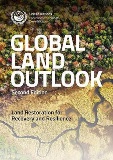
Global Land Outlook 2nd edition
2022
Sets out the rationale, enabling factors, and diverse pathways by which countries and communities can reduce and reverse land degradation by designing and implementing their bespoke land restoration agenda. Land restoration for recovery and resilience is about creating livelihood and development opportunities for people simply by changing the way we use and manage our land resources.
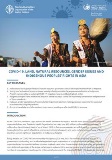
COVID-19, land, natural resources, gender issues and Indigenous Peoples' rights in Asia
2022
The brief signifies the importance of securing women's and Indigenous peoples’ land and natural resources rights, incorporating Indigenous beliefs and practices, Inclusive, gender-equitable, meaningful participation in decision-making for sustainable land and natural resources governance
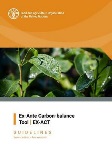
Ex-Ante Carbon-balance Tool | EX-ACT Guidelines
2022
EX-ACT is a land-use-based accounting system developed by FAO to evaluate the effects of the interventions in agriculture on greenhouse gas (GHG) emissions and carbon stock changes expressed as carbon balance. This publication describes in detail the main logic behind the tool, the tool structure, and the underlying equations and parameters used to calculate the carbon balance.
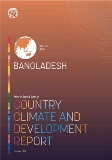
Bangladesh Country Climate and Development Report
2022
This CCDR identifies near-term policy and investment priorities that will support Bangladesh to continue progress in building resilience to the effects of climate change. The CCDR provides additional analysis to prioritize actions to accelerate climate-resilient development in line with Bangladesh’s goals.
Search by
Type of document
- Approach (20)
- Classification (1)
- Factsheet (3)
- Guidelines (22)
- Methodology (7)
- Policy brief (2)
- Report (16)
- Training manual (3)
Request to add a publication to this list by emailing: [email protected] with the title and hyperlink.
Disclaimer
The information in the publications displayed does not imply any official endorsement of or responsibility on the part of FAO for the opinions, ideas, data or products presented at these locations, or guarantee the validity of the information provided. The purpose of this repository is to provide users with convenient access to information to support project/programme document development, users have the responsibility of assessing its relevance, accuracy and suitability of application.
